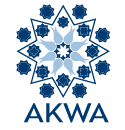There is no official holiday on the day of Eid in Bosnia, so no day-off from work unless one requests it. Muslims get up early in the morning and the men, dressed in fine clothing, go to Eid prayer. The ladies also dress up extra fancy and wait at home for the men to arrive for Eid breakfast. On the first day of Eid, starting from the eldest, all grandparents, uncles and aunts are visited, and then friends and neighbors. As a unique Bosnian custom, younger family members such as grandkids, nieces and nephews are also visited by the elders in return.
Each host prepares many different kinds of cakes and desserts for their guests including the Boşnak (Bosnian) baklava, hurmašica (traditional sweet pastry) and Boşnak lokum. Eid dinner turns into a feast with the famous Boşnak böreği (Bosnian pastry), soğan dolma (stuffed onion), and sarma (stuffed cabbage rolls) among other foods. No advanced notice is given to the host beforehand and visits are usually kept short in order to fit all of the visits in one day. Children collect candies and Eid money called “Bajramluk” from their families. Random kids who knock on doors also receive candies, but kids who come with their family as guests receive Eid money as well. No special Eid decorations are made in order not to resemble the non-Muslim holidays in the country, but a big Eid cleaning is done in every home in preparation for this special day.
Composed by Filiz Arslan




Yorum Bırakın / Leave a Comment